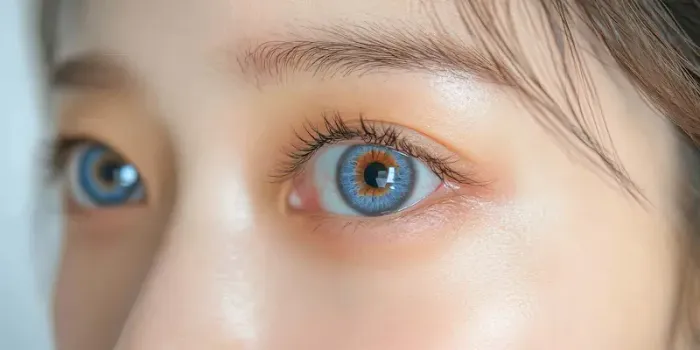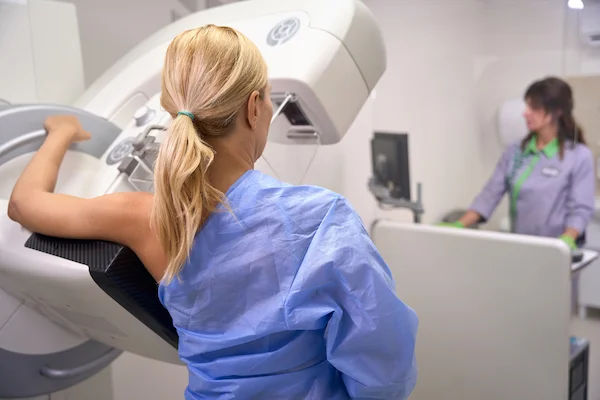Understanding Diabetic Retinopathy and Its Diagnosis
Know about diabetic retinopathy, what it is, symptoms, causes, risks and diagnosis and managing diabetic retinopathy for eye health.

Written by Dr. J T Hema Pratima
Reviewed by Dr. Shaik Abdul Kalam MD (Physician)
Last updated on 13th Jan, 2026

Introduction
Living with diabetes requires careful management of your health, as it can affect various parts of your body, including your eyes. One such complication is diabetic retinopathy, a condition that can lead to vision problems or even blindness if left untreated. The good news is that early detection and proper care can help protect your vision.
In this article, we’ll explain what diabetic retinopathy is, its symptoms, causes, and how it is diagnosed. We’ll also share some practical tips to manage the condition and when to seek medical help.
What is Diabetic Retinopathy?
Diabetic retinopathy is an eye condition that affects people with diabetes. It occurs when high blood sugar levels damage the tiny blood vessels in the retina, the light-sensitive layer at the back of the eye. Over time, these damaged blood vessels can leak fluid, swell, or even close off, leading to vision problems.
There are two main stages of diabetic retinopathy:
1. Non-Proliferative Diabetic Retinopathy (NPDR): This is the early stage where blood vessels weaken and may leak fluid into the retina, causing swelling (macular oedema).
2. Proliferative Diabetic Retinopathy (PDR): This is the advanced stage where new, abnormal blood vessels grow on the retina. These vessels are fragile and can bleed, leading to severe vision loss.
Consult the Best Endocrinologist for Personalised Advice
Symptoms of Diabetic Retinopathy
In the early stages, diabetic retinopathy may not cause noticeable symptoms.
However, as the condition progresses, you may experience:
• Blurred or fluctuating vision
• Dark spots or floaters in your vision
• Difficulty seeing at night
• Colours appear faded
• -Sudden vision loss (in severe cases)
Since symptoms may not appear until significant damage has occurred, regular eye check-ups are crucial for early detection.
Causes and Risk Factors
The primary cause of diabetic retinopathy is prolonged high blood sugar levels, which damage the retinal blood vessels. However, certain factors can increase your risk:
• Duration of diabetes: The longer you have diabetes, the higher your risk.
• Poor blood sugar control: Uncontrolled diabetes accelerates damage.
• High blood pressure: Increases stress on retinal blood vessels.
• High cholesterol: Can contribute to blood vessel damage.
• Pregnancy: Diabetic retinopathy may worsen during pregnancy.
• Smoking: Increases the risk of complications.
How is Diabetic Retinopathy Diagnosed?
Early diagnosis is key to preventing vision loss. An eye specialist (ophthalmologist) can detect diabetic retinopathy through a comprehensive eye exam, which may include:
1. Visual Acuity Test: Measures how well you see at different distances.
2. Dilated Eye Exam: Eye drops widen your pupils, allowing the doctor to examine the retina for signs of damage.
3. Optical Coherence Tomography (OCT): A painless imaging test that provides detailed pictures of the retina.
4. Fluorescein Angiography: A special dye is injected into your arm, highlighting blood vessels in the retina to detect leaks.
If you have diabetes, it’s recommended to get a yearly eye exam, even if you don’t have vision problems.
Managing Diabetic Retinopathy
While diabetic retinopathy can be serious, you can take steps to protect your vision:
1. Control Your Blood Sugar
• Monitor your blood sugar levels regularly.
• Follow your doctor’s advice on diet, exercise, and medications.
2. Maintain Healthy Blood Pressure & Cholesterol
• Eat a balanced diet low in salt and unhealthy fats.
• Exercise regularly and avoid smoking.
3. Attend Regular Eye Check-ups
• Early detection can prevent severe complications.
4. Follow Treatment Plans
• If diagnosed, treatments like laser therapy, injections, or surgery may be recommended to slow progression.
When to See a Doctor?
If you experience any vision changes such as blurriness, dark spots, or sudden vision loss, consult an eye specialist immediately. Even without symptoms, yearly eye exams are essential for early detection.
Final Thoughts
Diabetic retinopathy is a serious but manageable condition. By keeping your diabetes under control, getting regular eye check-ups, and adopting a healthy lifestyle, you can significantly reduce the risk of vision loss. Remember, your eyes are precious; take care of them!
Consult the Best Endocrinologist for Personalised Advice
Consult the Best Endocrinologist for Personalised Advice

Dr. Saptarshi Bhattacharya
Endocrinologist
15 Years • MBBS, MD, DM Endocrinology (AIIMS New Delhi), FACE
Delhi
Apollo Hospitals Indraprastha, Delhi
(125+ Patients)

Dr Shruthi R
Endocrinologist
8 Years • MBBS, MD, DM (ENDOCRINOLOGY)
Bengaluru
Apollo Medical Center, Marathahalli, Bengaluru

Dr. Plabani Sarkar
Obstetrician and Gynaecologist
17 Years • Advanced Diploma in Reproductive Medicine, University of Schleswig Holstein Kiel, Germany 2024 Fellowship - Reproductive Endocrinology and Infertility, PGIMER Chandigarh 2021 – 2022 Specialized in female endocrinology, endometriosis & male infertility. Certification in Reproductive Genetics,Valencia,Spain 2024 Certification in Oncofertility, American Society of Reproductive Medicine 2024 Certification in Obstetrics & Gynecological Ultrasounds,NHS-UK(Royal College of Radiologists) 2024 D.N.B. - Obstetrics & Gynaecology, NBE, New Delhi 2021 MD - Obstetrics & Gynaecology, AIIMS, New Delhi 2014 - 2016 Specialized in Laparoscopic, Hysteroscopic procedures & Infertility treatments. MBBS, R.G. Kar Medical College, Kolkata 2007 - 2013 Honours in Preventive & Social Medicine. Gold Medal in Forensic Science & Medicine.
Bengaluru
Apollo Clinic Mahadevapura, Bengaluru

Dr G Prathyusha
General Physician/ Internal Medicine Specialist
6 Years • MBBS DNB (Family medicine), CCEBDM (Diabetology), PGDGM (Geriatrics), Primary care Rheumatologist.
Bengaluru
PRESTIGE SHANTHINIKETAN - SOCIETY CLINIC, Bengaluru

Dr. Nilotpal Mitra
General Physician/ Internal Medicine Specialist
20 Years • MBBS, PGDGM ( Geriatric Medicine), ACMDC (an Advance course in Diabetes and cardiovascular diseases from PHFI and WHF )
Kolkata
MCR SUPER SPECIALITY POLY CLINIC & PATHOLOGY, Kolkata
Consult the Best Endocrinologist for Personalised Advice

Dr. Saptarshi Bhattacharya
Endocrinologist
15 Years • MBBS, MD, DM Endocrinology (AIIMS New Delhi), FACE
Delhi
Apollo Hospitals Indraprastha, Delhi
(125+ Patients)

Dr Shruthi R
Endocrinologist
8 Years • MBBS, MD, DM (ENDOCRINOLOGY)
Bengaluru
Apollo Medical Center, Marathahalli, Bengaluru

Dr. Plabani Sarkar
Obstetrician and Gynaecologist
17 Years • Advanced Diploma in Reproductive Medicine, University of Schleswig Holstein Kiel, Germany 2024 Fellowship - Reproductive Endocrinology and Infertility, PGIMER Chandigarh 2021 – 2022 Specialized in female endocrinology, endometriosis & male infertility. Certification in Reproductive Genetics,Valencia,Spain 2024 Certification in Oncofertility, American Society of Reproductive Medicine 2024 Certification in Obstetrics & Gynecological Ultrasounds,NHS-UK(Royal College of Radiologists) 2024 D.N.B. - Obstetrics & Gynaecology, NBE, New Delhi 2021 MD - Obstetrics & Gynaecology, AIIMS, New Delhi 2014 - 2016 Specialized in Laparoscopic, Hysteroscopic procedures & Infertility treatments. MBBS, R.G. Kar Medical College, Kolkata 2007 - 2013 Honours in Preventive & Social Medicine. Gold Medal in Forensic Science & Medicine.
Bengaluru
Apollo Clinic Mahadevapura, Bengaluru

Dr G Prathyusha
General Physician/ Internal Medicine Specialist
6 Years • MBBS DNB (Family medicine), CCEBDM (Diabetology), PGDGM (Geriatrics), Primary care Rheumatologist.
Bengaluru
PRESTIGE SHANTHINIKETAN - SOCIETY CLINIC, Bengaluru

Dr. Nilotpal Mitra
General Physician/ Internal Medicine Specialist
20 Years • MBBS, PGDGM ( Geriatric Medicine), ACMDC (an Advance course in Diabetes and cardiovascular diseases from PHFI and WHF )
Kolkata
MCR SUPER SPECIALITY POLY CLINIC & PATHOLOGY, Kolkata




